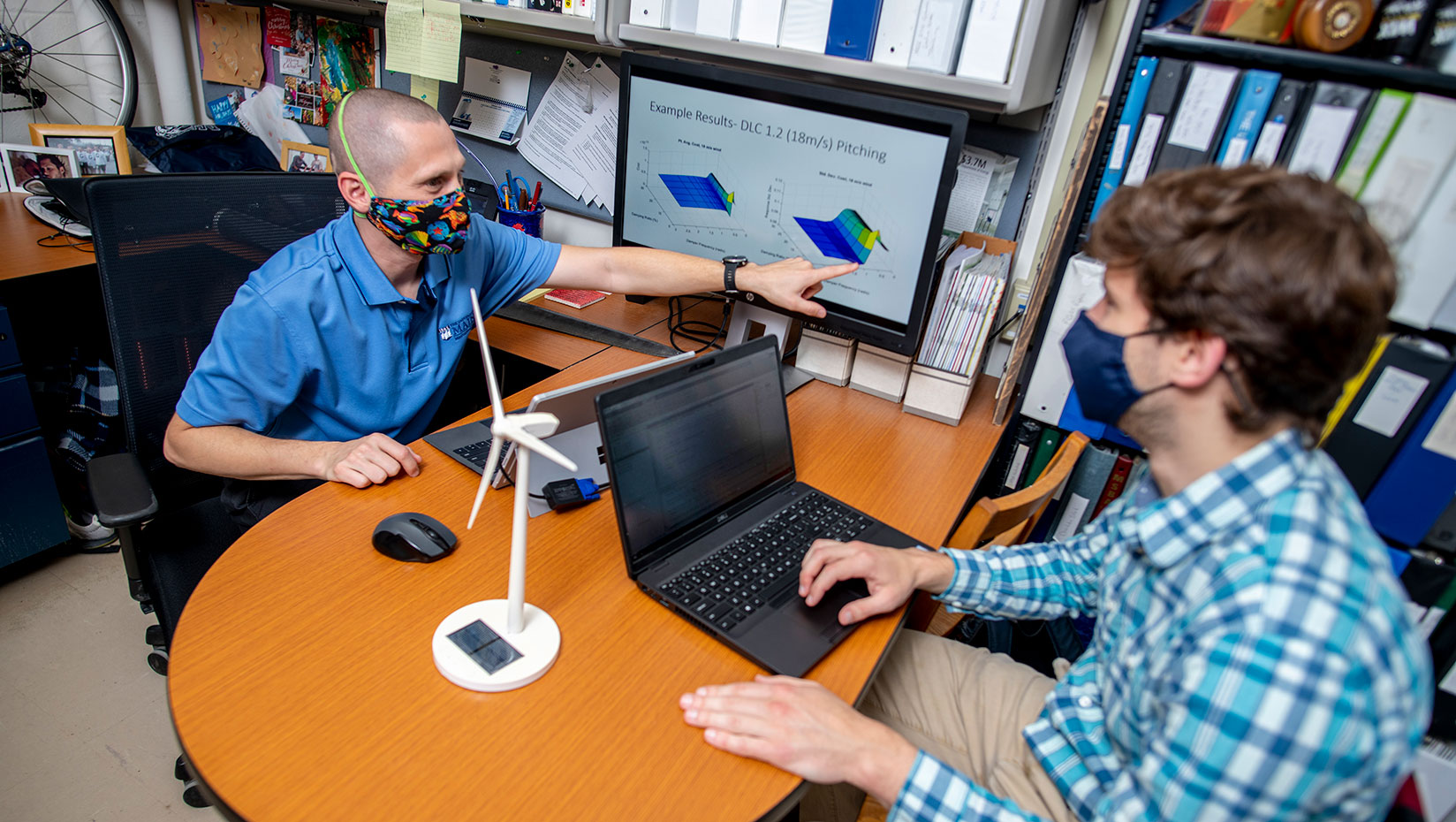
UMaine, UMS will have roles in implementing recommendations of the state’s Economic Recovery Committee
Innovation, entrepreneurship and talent development and attraction are key to growing Maine’s economy, according to the second and final report of Gov. Janet Mills’ Economic Recovery Committee. Those also are the strengths of the University of Maine System and the state’s research university, the University of Maine — Maine’s public higher education institutions that are more committed than ever to helping the state emerge from the pandemic and pursue its economic development strategy, according to UMaine President Joan Ferrini-Mundy.
Indeed, the Economic Recovery Committee’s newly released report echoes the tenets of the UMS Research and Development Plan FY20–FY24, and UMaine’s Strategic Vision and Values: A Framework for the University’s Future.
It also aligns with the recent $240 million investment by the Harold Alfond Foundation in the UMS TRANSFORMS initiatives.
“The recommendations of the Economic Recovery Committee recognize that innovation, entrepreneurship and development of a workforce with the 21st-century skills drive economic growth and are worthy of bold public investment to accelerate Maine’s recovery,” says President Ferrini-Mundy, who served on the strategic work team that helped develop Maine’s 10-year strategic economic development plan, “Maine Economic Development Strategy 2020-2029: A Focus on Talent and Innovation,” that was announced in December 2019.
“Many of the recommendations, especially around innovating for the future of our heritage industries while harnessing our winds and waters to create a new clean energy industry, build on the existing strengths and partnerships of the University of Maine. We applaud the committee’s vision and look forward to partnering on the bold initiatives that will sustain and add value to our vital natural resources while improving our already outstanding quality of life, especially in the state’s rural regions.”
UMaine innovation and research were cited in the new report that called for investment in “high-potential industries,” especially bioproducts and clean energy. UMaine research and development in bioproducts and clean energy generation has helped make Maine a national leader, notes the report. That includes the university’s work in offshore wind, bioenergy, bioplastics and cross-laminated timber, according to the committee report.
Also noted in the report’s section on accelerating Maine’s economic growth by investing “boldly, strategically and consistently in next-generation technology and innovation to grow our value-add economy” — UMaine’s leadership as one of eight national regional centers designated by the U.S. Department of Energy to support deployment of highly efficient combined heat and power technologies.
The report also calls for the need to “unleash the potential of Maine’s workforce by creating educational and training pathways for people of all experience levels to access careers in high-demand fields.” It notes that the University of Maine System, the Community College System and private higher education institutions in the state will have major roles to play in helping ensure accessible, affordable education for working adults.
That same leadership is needed in helping ensure that all in Maine have high-quality broadband “to support economic development, remote work, distance education, telehealth and meaningful community connections,” according to the report.
Those are roles that UMS embraces and will advance as part of the state’s economic recovery efforts, says Chancellor Dannel Malloy.
“Prioritizing the safety and success of students in the pandemic has accelerated the pace of change and broadened access to higher education,” Chancellor Malloy says. “The Economic Recovery Committee’s $93 million proposed investment in postsecondary education would build on the bet the Harold Alfond Foundation has made on the future of the University of Maine System, its students, and our state. Innovation must be the expectation when it comes to creating pathways that connect learners to attainment, employers and careers in the high-demand fields that will drive our economic recovery and future.”
Contact: Margaret Nagle, nagle@maine.edu
